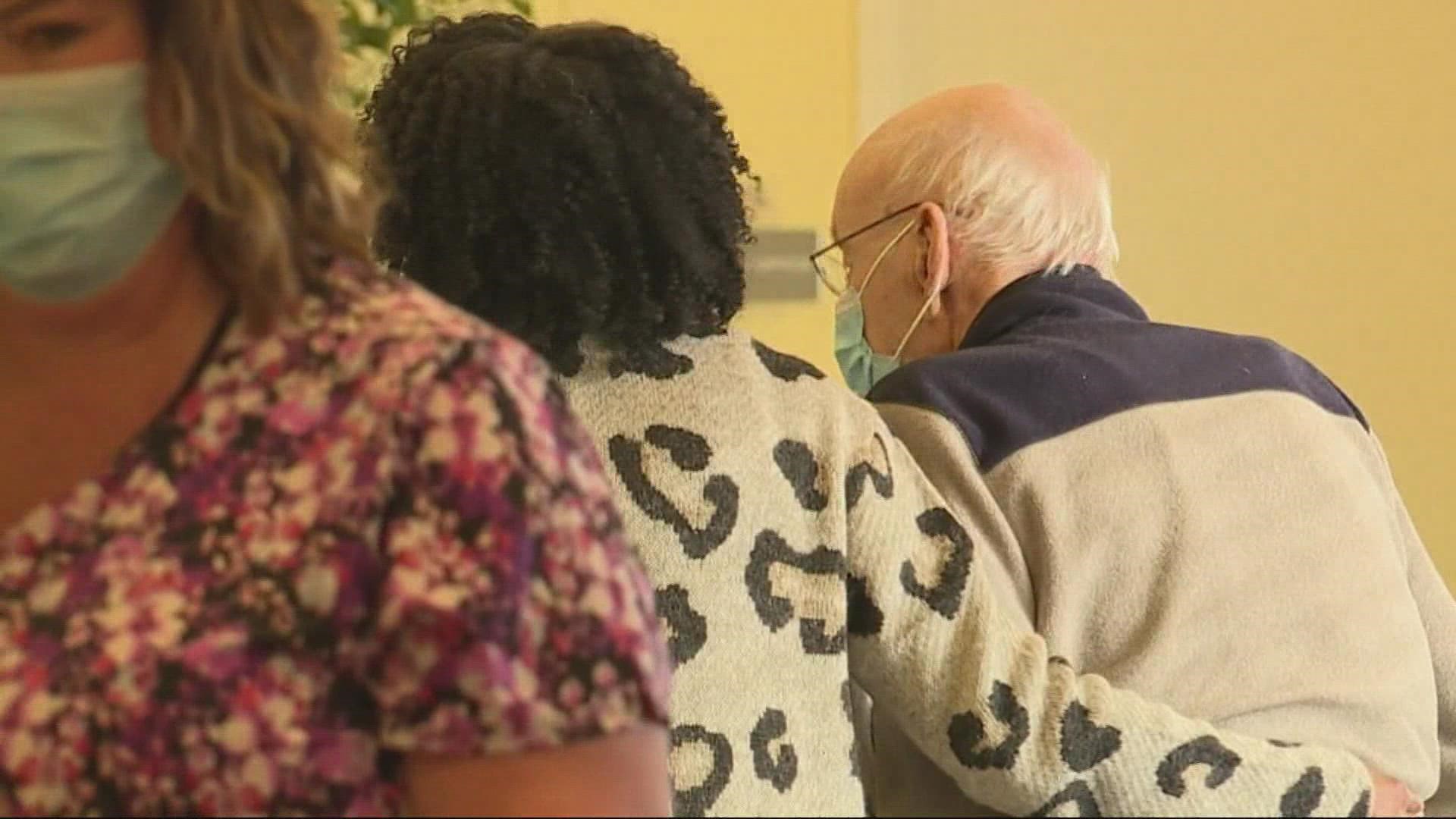SALEM, Ore. — State public health officials are trying to prioritize COVID-19 test availability for Oregonians who need it most as the omicron wave pushes cases — and testing— to the highest levels they've ever reached during the pandemic.
At a press conference on Thursday afternoon, Oregon Health Authority Director Patrick Allen said the state would report 9,797 new COVID cases later that day, the second-highest daily total the state has logged. The state's seven-day average has jumped from below 1,000 in mid-December to 7,930 as of Thursday.
More tests are also being administered than ever before, Allen said, but the unprecedented number of cases is still making tests difficult to find, and there are likely to be more positive cases that go untested or unreported, meaning the daily counts may not rise much higher even though the wave will keep growing.
“We’re likely approaching the maximum capacity of our testing system to identify cases," he said.
In light of that limitation, state health officials plan to focus on hospitalization rates as the central metric to track the impact of the pandemic, he said, although daily case numbers will still be reported.
The Oregon Health Authority set up a new hotline to report cases this week, but it will focus less on individual case interviews and contact tracing, he said, and more on monitoring outbreaks in high-risk settings such as long-term care facilities and food processing plants.
Oregon ordered 12 million COVID-19 test kits (6 million packs of two) back in December, and Allen said on Thursday that the state has received about 1 million tests so far, with another 1 million expected in the next week.
The tests are being distributed to health authorities, hospitals and others agencies, he said, with the goal of prioritizing testing access for nurses, teachers and other essential workers in high-risk environments.
Adjusting to disruptions
The omicron wave has disrupted games and events and caused staffing shortages at many businesses due to the high number of employees who have had to call out sick and quarantine.
Despite pledges to maintain in-person classes, many Portland-area school districts have had to move some of their schools back to remote learning due to a lack of available teachers, bus drivers and other staff.
At the press conference, Oregon Department of Education Director Colt Gill acknowledged that several school districts throughout the state have been forced to temporarily close individual schools and switch back to online classes due to a lack of available staff, but said the department remained committed to maintaining in-person instruction whenever possible.
Oregon's hospitals are also feeling the strain, and state officials have been sounding the alarm for weeks about a hospital capacity crunch as the omicron wave hits its projected peak in the next few weeks.
State officials are working with the Oregon National Guard to send approximately 1,200 Guard members to hospitals throughout the state to provide support services, Allen said, and is working with a contractor to form a "rapid relief pool" of about 200 health care workers who can be deployed to facilities that are on the brink of being overwhelmed.
The Oregon Health Authority has already placed more than 600 clinicians at hospitals, long-term care facilities and vaccination sites through excising contracts, he said, and officials are working on new contracts to bring in hundreds more in the coming weeks.

